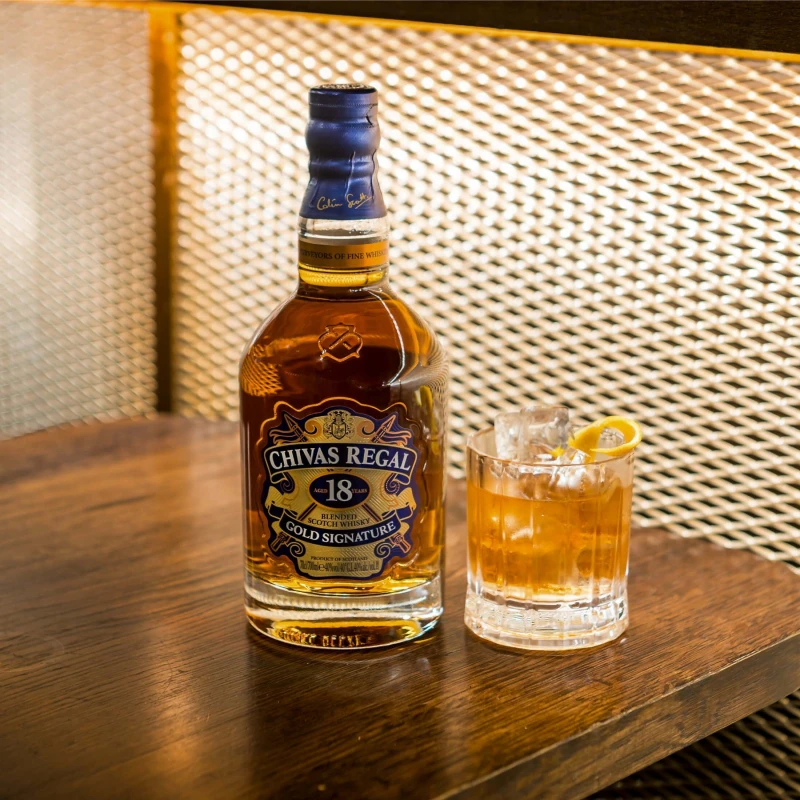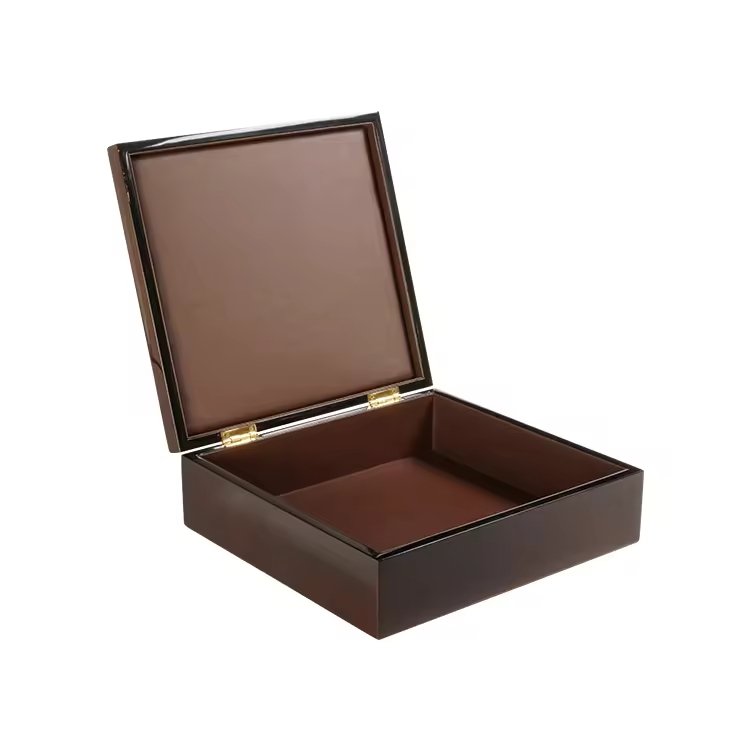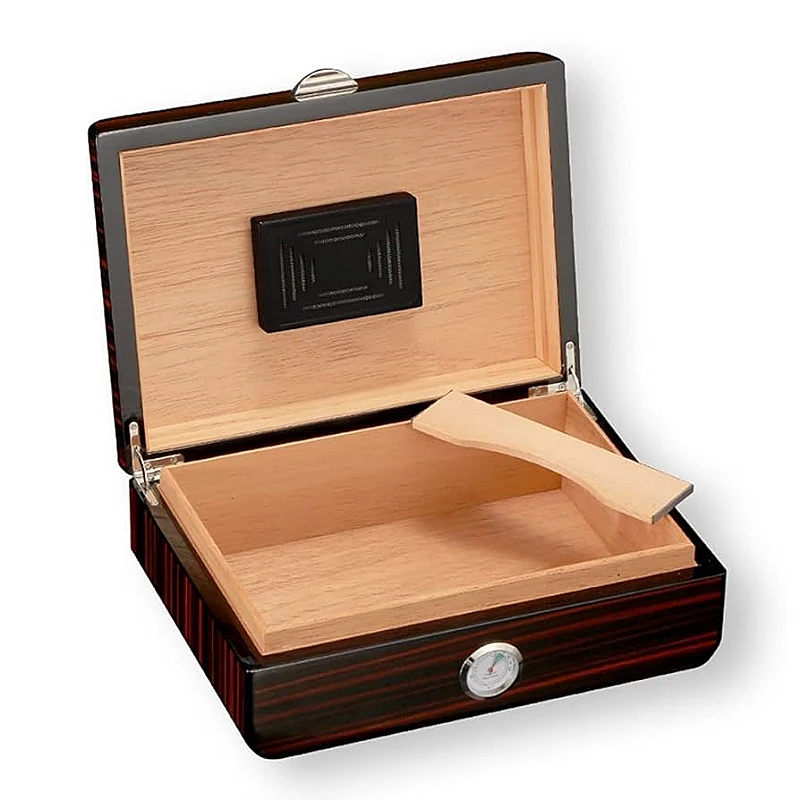
A cigar brand may have a rich history, but if it stays hidden, customers cannot feel it. Packaging is the best stage for storytelling.
A brand’s history can be visualized on wooden cigar boxes through engraving, embossing, illustrations, typography, maps, limited editions, and modern mixed techniques.
Let’s look at how these forms make stories visible.
How can engraving or embossing be used to narrate key moments of brand history?
Flat printing can tell a message, but engraving and embossing give it permanence.
Engraving and embossing narrate history by making key moments physically part of the box surface, like a carved memory.
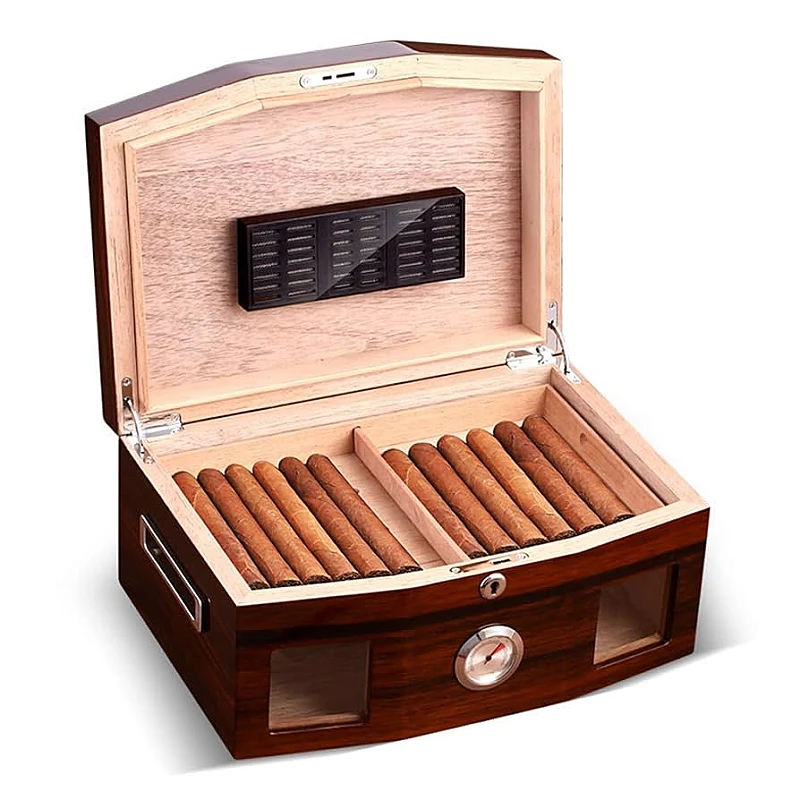
Milestones—such as a founding year, an anniversary, or a family crest—become tactile elements. Customers not only see but also feel the story in their hands.
Examples of historical engraving
| Technique | Storytelling Use Case | Effect on Consumer |
|---|---|---|
| Deep engraving | Founding year or motto | Lasting heritage impression |
| Embossed crests | Family or dynasty symbols | Nobility and authenticity |
| Layered embossing | Key milestones or medallions | Prestige and collectibility |
I once engraved a 100th-anniversary date on the lid of a cigar box. Collectors told me they displayed it like a plaque. The story became permanent decoration.
Why do illustrated patterns or vintage-style graphics resonate with storytelling?
Modern icons may look trendy, but they lack depth. Vintage-style graphics connect to heritage.
Illustrated patterns and vintage graphics resonate because they recall historical design, linking packaging to tradition and storytelling.

Ornate flourishes, hand-drawn leaves, or detailed tobacco farm sketches evoke craftsmanship. These designs echo 19th-century cigar art, when storytelling was part of every label.
Storytelling through illustration
| Graphic Style | Narrative Value | Consumer Response |
|---|---|---|
| Hand-drawn farms | Roots of cigar growing | Emotional connection to land |
| Vintage frames | Echo of heritage documents | Prestige and continuity |
| Ornamental borders | Classic craft symbolism | Trust in brand legacy |
One Cuban-inspired brand I worked with used hand-drawn tobacco leaves as a border. Customers said it felt “authentic, like old Havana.” Illustration became history in pictures.
In what way can typography and old-style lettering evoke a sense of legacy?
Words alone can tell a brand name, but their style gives identity.
Typography and old-style lettering evoke legacy by visually recalling past eras, linking modern packaging to tradition.

Serif fonts suggest old-world prestige. Script styles evoke handwritten tradition. Gothic or ornate lettering recalls colonial history. Each choice makes words part of the story.
Typography heritage impact
| Lettering Style | Heritage Signal | Ideal Brand Personality |
|---|---|---|
| Serif fonts | Classic, timeless identity | Traditional cigar brands |
| Hand-script fonts | Personal, artisanal touch | Boutique or family brands |
| Ornate vintage type | Prestige, old-world culture | Heritage-focused companies |
I once advised a Dominican brand to change their logo font to a serif style inspired by old newspapers. Sales increased because the box now looked like “part of history.” Typography alone reshaped legacy.
How does incorporating maps, landmarks, or cultural symbols strengthen origin identity?
Origin is central to cigar branding. Visual cues can bring it alive.
Maps, landmarks, and cultural symbols strengthen identity by visually linking cigars to their geographic and cultural birthplace.
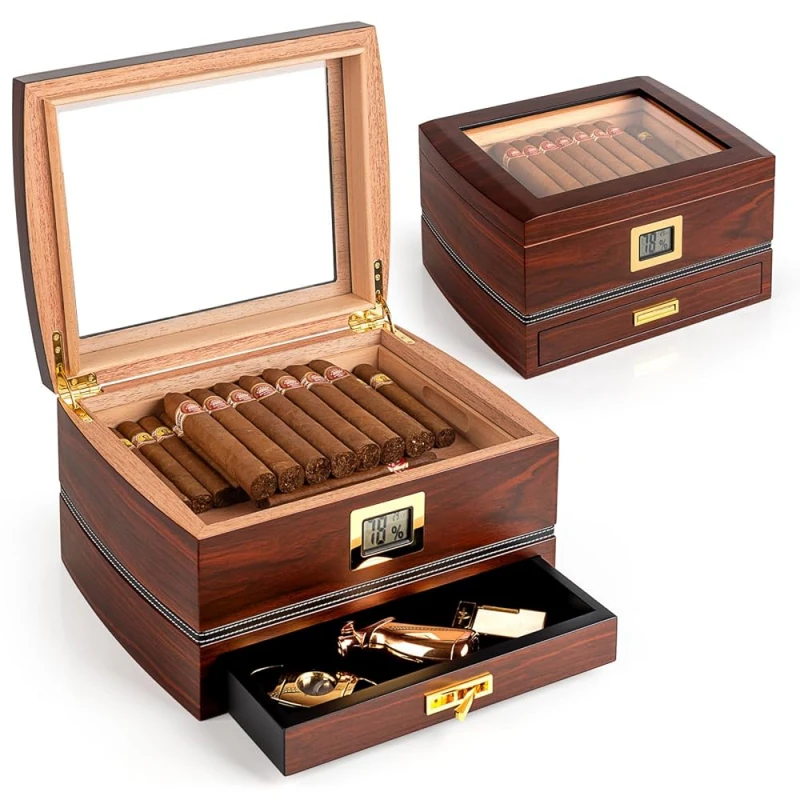
A map of Havana, an outline of Nicaragua, or an iconic landmark like a colonial church becomes proof of origin. These details show authenticity and pride in place.
Origin storytelling symbols
| Symbol Type | Origin Connection | Emotional Effect |
|---|---|---|
| Maps of regions | Proof of terroir | Trust and authority |
| Famous landmarks | National heritage | Cultural pride |
| Local motifs | Folk or artisanal ties | Warmth and authenticity |
I once designed a series of boxes with engraved plantation maps. Collectors said they felt like “owning a piece of the land.” Maps and symbols become visual passports to origin.
Why do limited-edition storytelling boxes enhance both collectible and emotional value?
A regular box may show identity. A limited-edition box can become history itself.
Limited-edition storytelling boxes enhance value by making history tangible, rare, and emotionally powerful for collectors.

When brands release anniversary or commemorative editions, they add exclusivity. Each box becomes a time capsule of heritage. Collectors see it as both a product and a cultural artifact.
Storytelling through limited editions
| Limited Edition Style | Historical Story | Collectible Effect |
|---|---|---|
| Anniversary box | Brand milestones | Emotional pride |
| Founder’s tribute | Legacy storytelling | Heirloom-like significance |
| Historic re-issue | Vintage designs revived | Secondary market demand |
One client produced a 75th-anniversary box with engraved founder portraits. Collectors said it was “too beautiful to throw away.” The packaging itself became heritage.
How can modern techniques (like laser carving or mixed materials) make history feel alive on packaging?
History should not feel old-fashioned. Modern methods bring it alive for today’s buyers.
Laser carving, foil layering, or mixing wood with metal can modernize history, making it relevant while keeping authenticity intact.
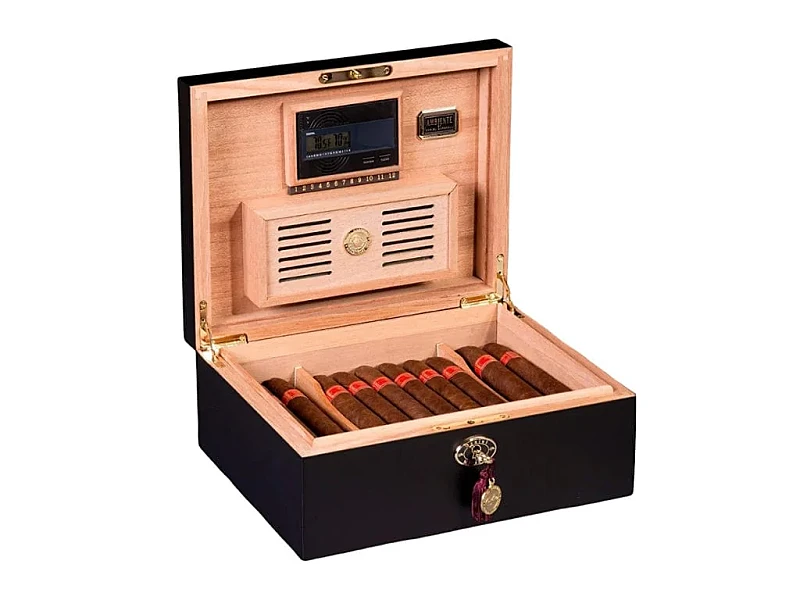
Laser etching allows detailed maps, portraits, or texts to appear with precision. Mixed materials like wood plus brass plaques or leather panels add depth. These touches keep storytelling fresh but rooted in tradition.
Modern storytelling methods
| Technique | Storytelling Function | Consumer Impact |
|---|---|---|
| Laser carving | Precise historic details | Sharp, modern heritage look |
| Wood + metal mix | Old meets new symbolism | Unique collectible identity |
| Layered foils | Emphasis on key milestones | Premium, celebratory feel |
I once created a box that combined laser-etched farm maps with a brass anniversary plate. Buyers described it as “modern history.” That blend kept the past alive in a new way.
Conclusion
A brand’s history can be visualized on cigar boxes through engraving, illustration, typography, cultural symbols, limited editions, and modern techniques, turning packaging into heritage storytelling.
Brand Name: WoodoBox
Slogan: Custom Wooden Boxes, Crafted to Perfection
Website: www.woodobox.com
WhatsApp: +86 18359265311


